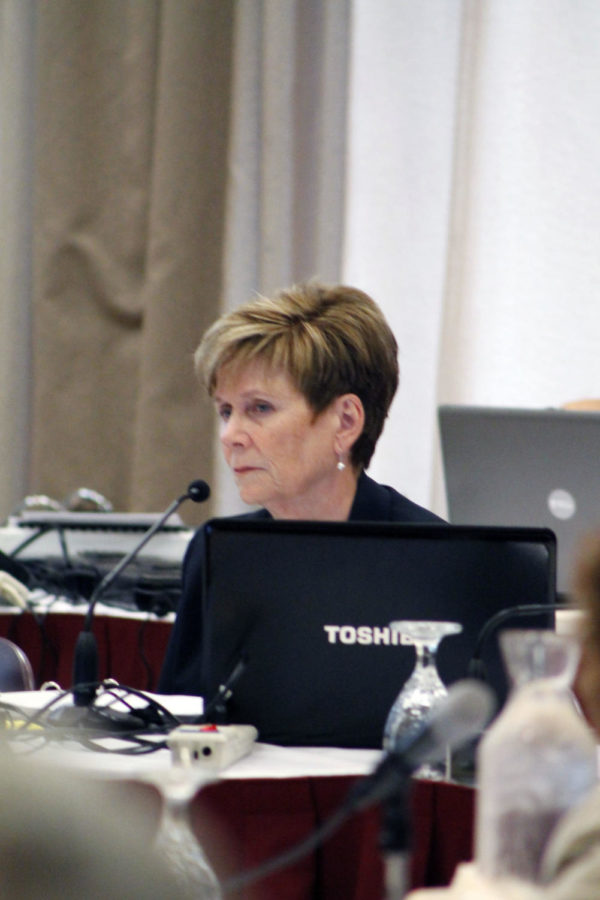ISU presents accreditation reports for four programs to Board of Regents
Photo: Adam Ring/Iowa State Daily
Iowa Board of Regents member Katie Mulholland takes part in a Board of Regents meeting in the Sun Room of the Memorial Union.
February 27, 2014
Iowa State was the first of the three regent universities to present program accreditation reports to the Board of Regents. The reports were presented on Wednesday.
“It gives us an opportunity for the people who are responsible for leading the programs to kind of show their pride with what’s being done and talk a little bit about where they want to head,” said Regent Katie Mulholland.
Accreditation is a process of program validation in which colleges, universities and other higher education institutions are evaluated.
ISU programs reported were those of architecture, engineering, design, didactic and dietetic internship.
Senior Vice President and Provost Jonathan Wickert said the meeting was an opportunity to take a deeper look into programs. Presentations focused on what students are learning and student job opportunities as well as the accreditation reports.
Department chairs and deans took the opportunity to highlight aspects of their programs and to share the value of having an accredited program.
Accreditation recognizes programs as meeting state and national standards. Some employers, graduate schools and licensure and certification boards require graduation from an accredited program.
In order to become licensed in architecture or engineering, for example, a student must graduate from an accredited program.
The College of Engineering accreditation report shared information on its 12 academic programs across eight departments. The college holds the largest department at Iowa State. Mechanical engineering with 1,943 students, said Gary Mirka, associate dean for academic affairs.
“One of the important parts of the brand of the college of engineering is the experience of hands on learning,” Mirka said.
Eight of the 12 programs showed no shortcomings in the accreditation process, Mirka said. One area of concern included a shortage of courses. A question raised was that of the female percentage within the College of Engineering.
The College of Engineering has about a 15 percent female enrollment, compared to a national average of about 18 percent.
Dean of the college, Sarah Rajala, said this is something she wants to change. She said Iowa State is working with K-12 programs to raise interest in engineering among young girls.
The Didactic in Dietetics and Dietetics Internship Program accreditation reports were also shared. Iowa State has the only didactic program in the state of Iowa and holds the largest dietetics internship program in the world, said Anne Oldham, director of the didactic program.
“In Iowa, education is our biggest industry,” Mulholland said to the room.
The committee will hear reports from University of Iowa and University of Northern Iowa, as well. Reports of how the three universities plan to improve their programs will be given at the March 12 board of regents meeting.

















